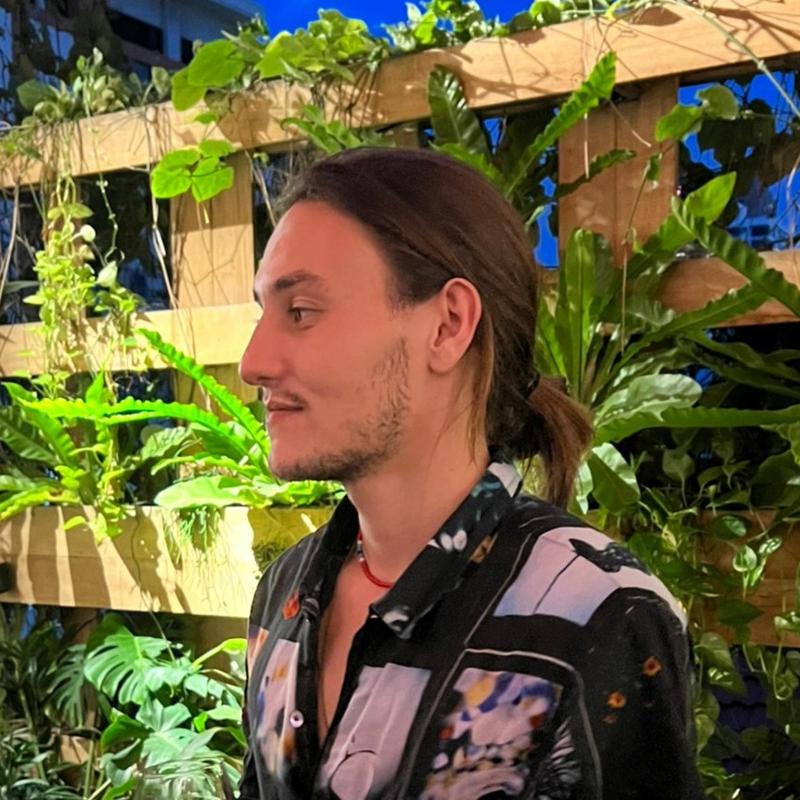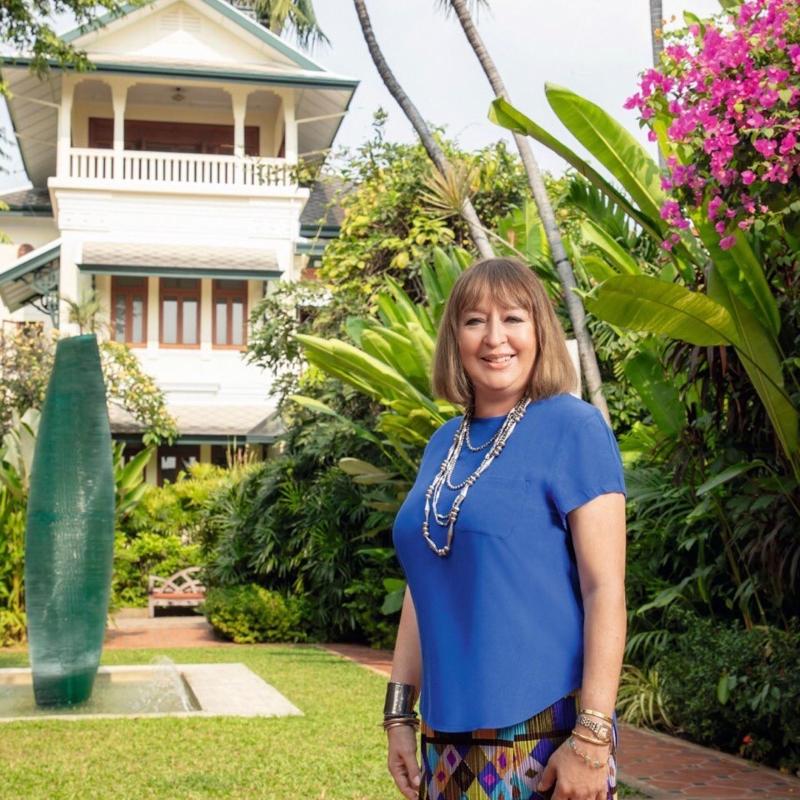The internet has impacted every aspect of our lives—including our mental health. To gain more insights surrounding the topic, we spoke with successful psychotherapist Ruangrin “Mafuang” Aksharanugraha.
In an era dominated by the internet, the digital age has revolutionised our lives, transforming the way we interact with each other and simplifying our daily routines. However, technology has also profoundly impacted our mental well-being. One of the most obvious dangers of the digital age on mental health is the rise of social media. While these platforms connect us with individuals worldwide, they have also been associated with feelings of isolation and loneliness. Numerous studies indicate that frequent use of social media apps heightens the risk of experiencing depression and anxiety.
Koktail had the privilege of speaking with Futurelister Ruangrin “Mafuang” Aksharanugraha, a highly accomplished psychotherapist. Mafuang not only manages her own captivating content blog, “Beautiful Madness by Mafuang,” where she discusses psychology in an engaging and accessible manner for Thai readers, but she is also a relationship therapist in Thailand. With a master’s degree in Clinical Psychology, specialising in Marriage and Family Therapy from the United States, Mafuang offers valuable therapy sessions to those seeking guidance in their relationships. Most of all, she strongly believes that you don’t have to be “mad” to seek help.

How has the digital age impacted mental health? What are some common challenges individuals face in managing their mental health?
Because the digital age comes with capitalism, many platforms in the digital age are designed for people to compare themselves to each other, making it possible for their platform to grow. Many people become addicted to the world they see from their phone or just from the outside instead of getting in touch with the world within, for them to feel at peace. Today, the term “slowing down” has also changed, it does not mean “to rest” anymore, but it means “staying behind” instead and this causes many people to feel guilty. A few challenges that individuals struggle with in terms of mental health include burnout, lack of confidence, feeling not good enough, doubt in their identity, and loneliness.
With the increasing use of social media platforms, individuals may experience feelings of inadequacy or low self-esteem. What advice would you give to someone who is struggling with these issues?
Keep asking yourself where the voice in your head comes from. Is it from society? From parents? From colleagues? From what you see in social media? Try to differentiate yourself from the voice so you will know the problem is the problem and you are not the problem. Once you get that covered, start to evaluate and reflect, how much you want to subscribe to that voice as most of us can’t escape those voices in our heads for good. If you’re able to separate yourself from that voice in your head, you will always have your sense of self in a world where you might not feel you belong; you’ll still have you.
From your perspective, are there sufficient resources available for individuals struggling with mental health in Thailand? Could you discuss the current state of mental health resources in the country and what changes would you like to see?
More resources equals to understanding that mental health is crucial and it’s very normal for people to have mental health issues. Destigmatizing mental health is very important. In my opinion, there are a lot of mental health resources but people need to do a lot of fact-checking or reliability checks because unfortunately some don’t qualify sufficiently to handle severe mental issues.
People need to choose their resources wisely and make sure it fits each of their needs. I would say, in Thailand, we lack mental health practitioners. As for the ones we have, they work extremely hard and it causes them to burn out. I believe they need more pay and the government should make it easier for people, especially in rural areas, to understand mental health and know where they can ask for help. It should be accessed easily.
As an expert in the field, what warning signs or indicators should we be attentive to when recognizing that someone may need help with their mental health? How can we identify these signs?
One critical indicator in determining that someone could be having warning signs is when you notice someone you’re close to start changing in ways you feel in the gut that ‘this is not like them’. For example, it could be something subtle like this friend is actually a kind person but lately this friend has been acting aggressive even with little things. Or, this friend is a foodie and usually enjoys eating but lately denies every invitation of eating out but stays at home pretty much all the time.
While online resources can be helpful, some people may still hesitate to seek professional help due to various reasons. How can we encourage individuals to overcome this reluctance and seek appropriate mental health support when needed?
You don’t have to hit rock bottom to seek mental health help. You should give yourself chances to get better. Your first therapist might not be the therapist that fits you instantly, but it is perfectly okay to keep changing until you find who’s right for you. Give yourself time to explore ways that can help you best. Nothing is final. If you don’t like where things go, you can quit and go back to what you feel in your heart is right.
What advice would you give to individuals who are experiencing anxiety or depression in the digital age? Specifically, in the context of coping strategies and resources.
Advice for individuals grappling with anxiety or depression in the digital age is crucial. Coping strategies and resources play a significant role in this context. Remember, the ‘anxious feeling’ is real but what you’re anxious about is often not. It’s important to realise that anxiety or depression does not define you. They may visit, but there is hope for them to eventually find their way out. Though it’s easier said than done and can be very challenging, there will come a day that you don’t have to suffer anymore.Someday, you will be able to coexist with them peacefully. “Nurture yourself with hope” and hold on to that belief.
Here are a few coping strategies:
Breathe work: Engage in various breathing techniques, such as “Box Breathing.” Inhale deeply, hold your breath for a count of four, and then exhale. Repeat until you feel a sense of calmness.
Grounding: Embrace the present moment. Take notice of your surroundings. What do you see? Hear? Touch? Smell? Walk gently on the grass barefoot and feel the earth beneath you.
Prioritise quality sleep: Ensure you get enough restorative sleep to support your mental well-being.
Detox from social media: Doomscrolling can intensify anxiety. Allocate time to disconnect from your phone, even if it’s just 10 minutes before bedtime. Turn off all notifications to create a tech-free space.
Visualise your anxiety: Picture yourself standing on a train platform and observing a train passing you rapidly. Imagine the train as your anxiety. It approaches you but it eventually leaves.You remain standing strong on the platform, separate from your anxiety.
Most importantly, seeking mental health support tailored to your specific condition is of utmost importance. However, each individual requires unique techniques to promote their mental well-being.
Considering the ongoing evolution in the digital age, what does the future hold for mental health care and support? How can we ensure that technological advancements contribute positively to mental well-being?
The most important thing is for advancements to be safe. It is vital to safeguard against hacking and establish trust among clients, allowing them to feel comfortable opening up. I trust that technology will be able to approach individuals much easier than before. But the ‘understanding’ of mental health is even more important, it’s the first step for people to have the courage to seek help. In addition, technology should spread awareness about mental health, normalising mental health, and making it friendly and more approachable to talk or discuss about mental wellbeing.
Lastly, could you share some practical tips or strategies that individuals can use to strike a balance between their digital engagement and mental well-being?
Take time to find your balance as this can be flexible from time to time, you can draw boundaries but be open to adjusting them as needed. When you draw the boundary, know that it can be changed over time. Don’t restrict yourself to one rule, be playful in finding what works for you and experiment with different approaches to strike the right balance. Most importantly, be gentle with yourself and practice self-compassion. Understand that achieving a balance takes time and effort. Always remember to treat yourself kindly throughout the process.







